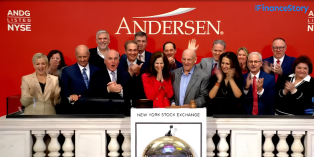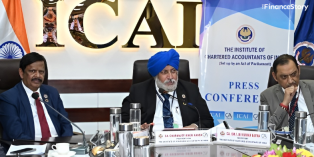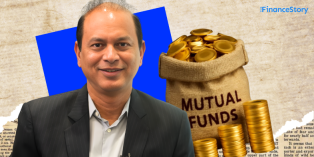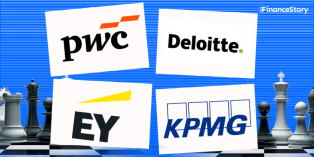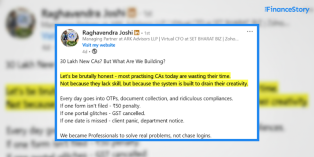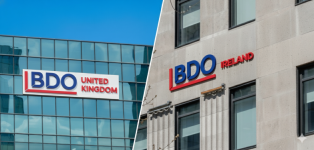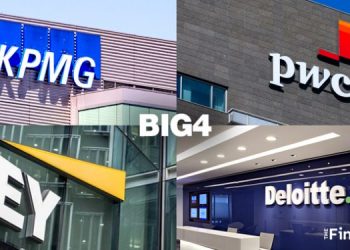- Hi, I am Lyle Malander a Chartered Accountant from South Africa and co-founder of the Malander Group of companies.
- Today I may run a successful firm offering business advisory, and recruitment services to clients in South Africa and the UK, but it was far from easy.
- Here is how I quit my well-paying job and started my venture from scratch.
Growing up surrounded by poverty
I was born in Cape Town.
Being colored in South Africa meant that I came from a previously disadvantaged background.
I grew up in and around the Cape Flats and was surrounded by poverty.
My parents never had access to proper tertiary education growing up or opportunities to grow financially.
That being said, I will always appreciate the efforts my parents made to give me a good upbringing.
Seeing them work hard has always been and continues to be a huge motivation for me.
Becoming a Chartered Accountant in South Africa
Growing up I never considered myself to be a smart kid, but I always challenged myself to improve myself.
Also, I always wanted to be a medical doctor, as it was a respected profession that made a difference in people’s lives.
My dream of becoming a doctor came to a crashing end when I realized that I couldn’t stand the sight of blood. So studying to be a doctor was completely ruled out. That is when I decided to opt for Commerce.
While studying at University I didn’t know what a Chartered Accountant was until I had to choose a course to study at University.
I did some research and at the time CA seemed like one of the most prestigious business degrees available, and boy was I right.
In my honors year at University, I was a below-average student and I made it into the final exam by the skin of my teeth.
It wasn’t an easy road to qualifying, and I think I was a bit too social at University. I must admit that I did not believe that I could pass that year, but I never gave up hope and gave it my all.
I managed to pass.
It just proves that anything is possible if you put in the right amount of effort.
I did my articles at one of the Big 4 firms in Johannesburg and finally qualified as a Chartered Accountant.
Quitting Big 4 to start my Advisory Business
After finishing my articles, I went on a Secondment to Chicago, USA through the same Big 4 Firm.
Thereafter I came back to join the same firm in an advisory division.
I worked for about 2 years before deciding to quit and start my own business.
I have always had the desire to make a difference and one of my career goals was to become a CEO of a large listed entity.
One route to becoming a CEO of a large listed entity was to work my way out of the corporate ladder, the other was to try and start building a large listed entity from scratch. And I guess I subconsciously went for the latter approach.
The easiest place to start was with an area that I was familiar with; Accounting. Hence the birth of the idea of the Advisory business – Malander Advisory in 2015.
While chatting with my now co-founder, Shaveera John, she immediately expressed her desire to join the business, which made the decision much easier.
We were now two Chartered Accountants jumping into the unknown.
Here is our Growth Timeline
2015
Funding our Venture
- My co-founder, Shaveera John and I started the Malander Advisory business with no real savings. We cashed out our pensions from our brief corporate career.
- We started our business in October 2015 consisting of a logo, two laptops, and two Chartered Accountants. That’s it.
- We did not incur any unnecessary costs and we didn’t rent any office space in the first 3 months in which we operated.
Getting our First Few Clients
- We gained clients by tapping our older connections and built from there.
- We had to prove ourselves with every project—and we still do. Treat each project as if it’s your first, as consistent and high-quality delivery is the cornerstone of what we take pride in.
- This allowed us to expand our client base through positive delivery and word of mouth.
2016
Renting an office space
- In January 2016, we made our first big decision and rented a small 2-person office.
- Being risk-averse Chartered Accountants, we did not want to enter into any long-term obligations and the serviced offices ran from month to month, which was perfect.
Hiring our first few employees
- In January 2016 we also hit the milestone of hiring our first temporary employee, as we had just won our second client.
- This was at a time when we were still very much in the infancy stage, but if we were to grow, we needed to increase our capacity.
Our Big Setback
- Our first big setback came in May 2016, when a project we were working on came to an end and we had no clients lined up.
- We suddenly realized that we were spending so much time working on the business, we had neglected to build our client pipeline and the frantic search for clients began.
- Soon after we were fortunate to have signed another large entity as a client and the rollercoaster began from there.
Focussing on business development
- We were conscious of not making the same mistake twice and continuously focused on business growth.
- We did all this while maintaining service excellence.
- Needless to say, this involved many many sleepless nights.
Starting a recruitment business
- We experienced good growth in the latter part of 2016 and therefore decided to expand our business through the introduction of our Human Capital recruitment business.
- This was done to save recruitment costs by bringing the function in-house, but also to expand the service offering to our growing list of large and listed clients.
2017
In 2017, we continued to grow our large and listed client base.
2018
- In May 2018, we identified an opportunity in the United Kingdom and opened our London office.
- It was a daunting prospect, as both myself and my co-founder had never spent time in London before, but we always had the desire to grow a global brand and this was a step in the right direction.
Wrapping up
One of my mottos is that Your past doesn’t define your future, meaning that where we come from shouldn’t determine where we are going.
Entrepreneurship is said to be the answer to unemployment challenges and slow growth, but to foster entrepreneurship we ideally need business leaders and owners who don’t give up.





